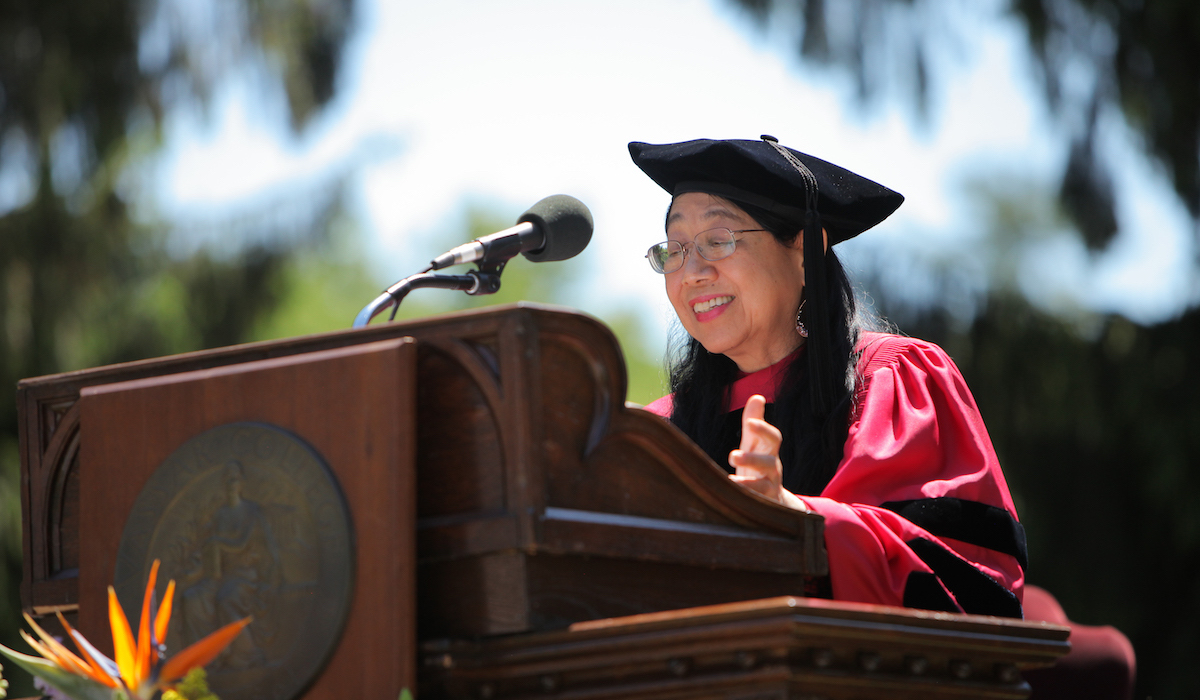
A Pioneer’s Perseverance
UW physicist Sau Lan Wu rose from daunting circumstances to excel in a field she loves.
I first heard of Sau Lan Wu last summer, when Quanta Magazine suggested that, in a different world, her work could have won the Nobel Prize in physics. Over the past year, I’ve learned much more about her life. It could be a Hollywood film.
The UW–Madison Vilas Professor’s story is a lesson in dichotomy. She grew up in dire poverty on the streets of Hong Kong as her wealthy father traveled the globe as the Ginger King, so named for his success in the preserved-ginger industry. She had $40 to her name when she arrived in the United States — 10 years later, she had a PhD from Harvard. And then she devoted her life to a rarely reciprocal field dominated by men.
Wu has played a core role in three major discoveries in particle physics, advancing what we know about the tiniest parts of matter — and therefore, the world around us. Along the way, she’s advised more than 60 UW graduate students and 40 postdoctoral researchers. “On track record alone, both with scientific output and with students, she’s unique,” says Steven Ritz MS’82, PhD’88, a professor of physics at the University of California–Santa Cruz and one of Wu’s first graduate students.
As I ask Wu about the many obstacles and injustices she’s overcome, I expect an air of bitterness in her responses. Instead, I get lighthearted shrugs and her signature soft laugh: Well, that’s life. Eventually I learn why. To understand Wu is to view the world through the unwavering lens of her values: hard work, practicality, and perseverance.
Wu was born in Hong Kong in the early 1940s, as World War II began to rage. Her father, Tat Chee U, was a prominent businessman; her mother, Ying Lai, was the last of his six concubines — secondary spouses with inferior status, fewer rights, and no inheritance. (The practice, dating back 3,000 years, was legal in Hong Kong until 1971.)
Lai was in her teens when her cousin brought her from a poor village in southeast China to Hong Kong. As was customary, she was not allowed to go to school and grew up illiterate. She took a low-level job at a factory, where she met the successful and much older U — the eventual Ginger King, as a 1951 New Yorker article referred to him. “Mr. U is a short, friendly, authoritative man with liquid brown eyes, a slight stoop, and an excellent command of English,” the article read, noting that his name, fittingly, means “object — to be prosperous.” He went on to own 11 factories, amassing control of a growing industry and bringing successful commerce to the area. Britain’s Queen Mary once invited him to London for a personal visit. Even today, a street in downtown Hong Kong bears his name.
U’s prosperity scarcely trickled down to his sixth concubine and her children, particularly during war-torn times. When Lai became pregnant, she lived with U despite his primary wife’s protestations. She was tasked with menial housework and “treated like a servant,” Wu says. Just before Wu was born, Lai was cast out of the house to live in a slum on a meager allowance.
During the Japanese invasion in 1941, Lai ran in and out of bomb shelters with the newborn Wu wrapped in her arms. Wu’s younger sister, Yu Lan, was born about a year later. The name Yu Lan means moon orchid; Sau Lan means graceful orchid. They were tied together by birth name only. Unsettled by war, U insisted that the younger sister be given away, and a family caretaker took her to a nearby village. The unwilling mother cried every day.
“Life was very difficult at the time,” Wu says. Some years later, Wu and her mother traveled to the village to try to locate Yu Lan. But the village of wooden shacks had burned down earlier, and they never found her. “I regret very much that I didn’t make [more] effort to look for her,” Wu says, adding that she would have liked having a sister.
Wu’s later childhood was less marked by tragedy, yet still difficult. Her brother, Ming Lun, was born when she was five. The family couldn’t afford adequate living space. Wu’s mother and brother slept in a small rented bedroom while she slept in the corridor of a local rice shop. Her school in the slums was overcrowded, though she felt grateful to be there. When the education department came for inspection, she knew to hide to skew the head count.
Her father moved the family to a better region and a larger apartment when Wu was 12, and her mother enrolled her and her brother in respected missionary schools. “She was a very smart woman,” Wu says. “She always wanted to learn and felt very [deprived] that she could not read newspapers or write letters. She was extremely, extremely conscientious to make sure my brother and I were well educated.”
Wu excelled in school — particularly in math. She could multiply three-digit numbers in her head. Prior to enrolling, she had rarely seen her father, but now he visited for two hours each week and became invested in her academic success. Wu remembers the first time she impressed him: as he was leaving her family’s apartment, he quizzed her on why it was wet below all the cars except his. Because, she explained, he had arrived before it rained.
Her mother remained the steady, supportive presence. “Her life consisted of cooking for us and encouraging us to study,” Wu says. “She in fact had a very simple life. She felt very insecure — she often cried because she felt totally dependent on other people.”
Wu’s pull to practicality is most evident when she reflects on her father, someone she continued to love and respect despite the complex circumstances of her upbringing. He was “basically a decent person,” Wu says, noting that he resisted pressure from his other spouses to abandon her mother completely. “He was a very capable person. He worked very hard. He was just very successful professionally. After all, my father actually gave me a better life. … I admired my father, and in a way, he is my role model because he was very driven. [But] I love my mother, as she was really behind everything that gave me a chance to succeed.”
By the time she was 19, Wu knew only one thing for certain: she would live financially independent of men. “I saw how my mother suffered. I could not live in a life where I would need to open my palm and ask a man for support,” she says.
She knew from an early age that her path to independence was education. After she graduated from high school in 1959, her father expected her to work and contribute to the family. Instead, she went to a library and pulled out a thick book with the names of U.S. universities and colleges. She selected 50 on a whim and secretly applied, asking for admission and financial aid to cover tuition and living expenses. All but four universities rejected her outright, saying they did not have full scholarships available. Only one — Vassar College, a top all-women’s school in New York — sent a telegram accepting her. “So, you can see that I [paged through] from A to Z — Vassar is V,” Wu says, laughing.
Her mother and brother accompanied her to the dock as she prepared to board a ship to America. She wouldn’t see them for nine years. Her father came to say goodbye under the cloak of the early morning, avoiding detection. He bought her ticket to San Francisco and gave her $40. They stayed in touch by letter, but his health declined, and he died in 1969, a year before she earned her PhD. He had planned to attend the graduation ceremony at Harvard.
“I saw how my mother suffered. I could not live in a life where I would need to open my palm and ask a man for support.”
— Sau Lan Wu
It took Wu nearly a month to travel by ship and train to New York. She spent most of the time conversing with passengers, determined to better her fledgling English. She barely ate, weighing just 90 pounds and worrying about every cent. When she first arrived in New York, she stayed with a Vassar alumna in an apartment near Central Park. “For the first time, I saw how the rich people live,” she says.
When school administrators found out that she had only a few dollars to her name, they covered her books and school supplies. Her student adviser took her shopping, paying for basic necessities, while Wu frequented a donation closet on campus for clothes. She fell in love with American breakfast foods — steak, eggs, toast, and orange juice — and ate as much as she could at the cafeteria.
In wider society, Wu faced two 1960 Americas: a land of opportunity, but also one of inequity. She remembers her first direct experience with racial discrimination: during a visit with friends to Virginia’s supreme court building, she went to the restroom and saw signs for “white” and “colored,” and wondered which applied to her. Later on the trip, she faced the same dilemma on a segregated city bus.
Wu found comfort in her coursework. To avoid distractions, she spent most of her time buried in the basement of Vassar’s library. She aced her physics and math courses, but was less enamored with the humanities, taking four months to read The Scarlet Letter. A summer internship at the Department of Energy’s Brookhaven National Laboratory in Upton, New York, sparked her lifelong passion for discovery and particle physics. She also met her future husband: Tai Tsun Wu, a visiting physicist from Harvard.
Sau Lan graduated from Vassar in three years with the highest distinction. Once again against her father’s wishes, she applied to the most prestigious graduate schools, selecting Harvard over offers from Berkeley, Columbia, and Yale. Princeton rejected her because it only accepted women who were married to male faculty members; Caltech wrote that it didn’t have a women’s dormitory and only accepted “exceptional” women.
When Wu arrived at Harvard, she quickly realized she was the only woman in the physics department’s first-year graduate class. Her cohorts often studied together, but because women were not allowed in the men’s dormitory, she worked long hours alone in the physics library. The librarian took notice of her work ethic and encouraged her to go on a date with Tai Tsun. “She said, ‘He’s a good guy,’ and ‘[You’re] working very hard in the library,’ ” Wu recounts, laughing. The two quickly bonded, finding compatibility in their love of physics and their homogeneity of work and life. They married in 1967.
“We talk about physics a lot,” Wu says. “He’s a theorist; I’m an experimentalist. I consult him a lot because I feel that theorists have … a broader picture than experimentalists — or me, anyway.”
Wu made a concerted effort to stand on her own. “My thesis adviser always introduced me as T. T. Wu’s wife,” Wu says. “Nobody wanted to know my name.” She insisted that they no longer attend conferences together. “After a while, people didn’t even know that he was my husband — but that’s what I wanted. I don’t want to be known as his wife and not myself.”
Wu received her master’s degree in 1964, the first year that Harvard awarded graduate degrees to women. A guard kicked her out of the commencement lunch, telling her that women had never been allowed to join the celebration and leaving her in tears.
Hard work is a given in the field of particle physics — “A lot of people work hard,” Wu says — but the real challenge is the ability to sift through the clutter of infinite possibilities to know what to pursue, and how.
“She has a wonderful intuition for what’s going to be important,” says Steven Ritz, the Santa Cruz physics professor and her former student, who has served as chair of the Particle Physics Project Prioritization Panel (P5), a national advisory body. “You look at what she’s worked on over her career, and they’re among the things that in hindsight mattered the most.”
After receiving her PhD in physics from Harvard in 1970, Wu was hired by MIT as a research associate, working again at the Brookhaven lab. There she participated in the first major discovery of her career: the charm quark, which resulted in a Nobel Prize for her supervisor, Samuel Ting. A quark is an elementary particle that makes up larger particles, such as protons and neutrons, and leads to matter. Physicists knew of only three “flavors” of quark at the time — up, down, and strange. The charm quark became the fourth and opened up new possibilities in the field.
In 1977, Wu was hired as an assistant professor at UW–Madison, becoming one of the first two female professors in the century-old physics department. Within two years on the faculty, she played a leading role in the discovery of the gluon, a particle that binds — or “glues” — quarks together to form protons and neutrons. That discovery put her on the fast track to a full professorship in 1983, though her compensation lagged in comparison to other researchers with her level of federal funding. Donna Shalala, the UW’s first female chancellor, later advocated for her and realigned her salary.
Wu spent much of the interim — 32 years, to be exact — chasing the Higgs boson, which was hypothesized to give mass to elementary particles (and therefore all matter in the universe). “Looking back, I’d say that most of us thought it was 50–50 that the Higgs particle really exists,” says Ritz, who did research related to the Higgs under Wu in the ’80s.
Over the years, thousands of physicists collaborated at the European Organization for Nuclear Research (known as CERN) in Geneva, Switzerland, where Wu spends most of her time today. The breakthrough in concrete evidence finally happened in July 2012, when Wu’s group was one of the first at CERN to see an experimental sign of the Higgs. Wu appeared with four other key physicists on the front page of the New York Times, and Science journal named it the biggest scientific discovery of the year.
“I was never alone in this long and difficult struggle,” Wu says of her pursuit. She credits the steady confidence of UW chancellors Shalala, John Wiley MS’65, PhD’68, and David Ward MS’62, PhD’63; deans Terry Millar, Martin Cadwallader, Phillip Certain PhD’69, and Gary Sandefur; provost Paul DeLuca; colleagues Wesley Smith and Francis Halzen; and computer scientist Miron Livny, who helped to develop the technology infrastructure that enabled the Higgs discovery.
It’s not hyperbole to say that Wu has devoted her life to science. “I would say that she’s so dedicated that she doesn’t have much life outside of physics,” says Haichen Wang PhD’13, an assistant professor at Berkeley, who was a key contributor at CERN during the Higgs discovery. “She usually came to the office in the late morning and stayed there until the early morning the next day.”
Wu rarely talks about her upbringing with her colleagues and students. “In some sense, I’m not surprised — that was before science entered her life,” says Ritz.
Such singular devotion hasn’t been without sacrifice. Until recently, she’d lived apart from her husband for most of their 50-year marriage. While she’s conducted research at collaborative centers in Europe, he’s taught several time zones away at Harvard. They once considered having children, but they feared that it would jeopardize her track to tenure. “In those days, that was a reality,” she says, adding that while she has no regrets from her career, she does envy parenthood.
Wu considers her students and postdocs at CERN her extended family. She proudly lists all of them on her website: 61 students have received their PhDs under her supervision, and 36 former students and postdocs are now professors at universities around the world. “I don’t know anybody who’s had as many students as she’s had,” says Ritz, noting that two of his current colleagues were former advisees. “She has quite a legacy.”
Wu connects her students to as many professionals as she can and helps focus their research. “The most important thing that she does as a mentor is to point out the right direction and create a platform for her students to perform,” Wang says.
But science is human, too. Discrimination has persisted, though Wu has seen substantial progress since entering the field. A passage she read in Life magazine has stuck with her throughout her career: if you are a man, people assume you are competent until you prove that you are not; if you are a woman, people assume you are not competent until you prove that you are.
“I took it as a part of life,” Wu says. “I noticed what happened, and I just had to either fight it or tolerate it and move on. If you move on, eventually you’ll be successful. That’s what I believe.”
“The search may be long or difficult. Oftentimes, it is long and difficult. But when obstacles strike, you fall down, and you get back up.”
— Sau Lan Wu to Vassar graduates
Through all the success, Wu has viewed her mother as the most inspirational person in her life — someone who selflessly put her children before herself. After her father died, Wu moved her mother to Europe to live with her until her brother settled into a successful career in applied physics in the U.S. Her mother died in 2014 at age 94.
That same year, Wu returned to Vassar to give the college’s 150th commencement address. She left the graduating class with words that only a story like hers could transform from cliché to awe-inspiring.
“I made the resolution to devote my life to science and to make a significant contribution to humanity,” she said. “Since then, I have experienced the joy of discoveries, in life as in science. The search may be long or difficult. Oftentimes, it is long and difficult. But when obstacles strike, you fall down, and you get back up. You believe in yourself. You hold true to your determination. And you will do something great.”
Preston Schmitt ’14 is a staff writer and interim coeditor for On Wisconsin.
Published in the Summer 2019 issue
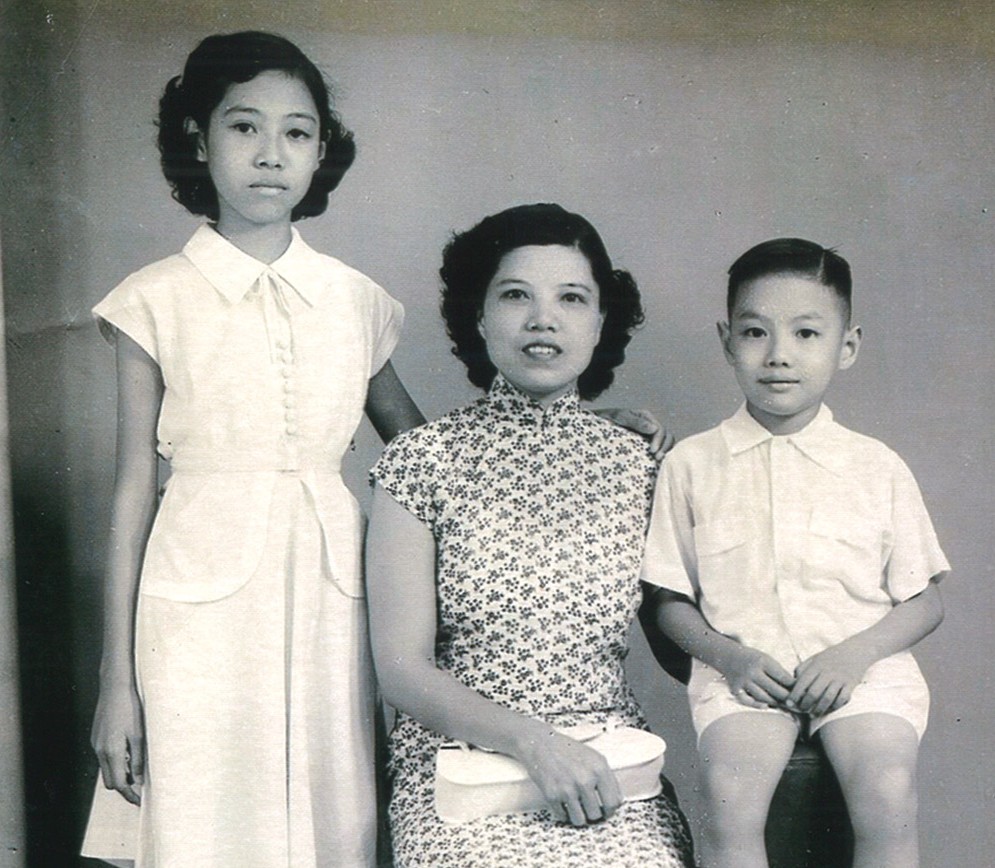
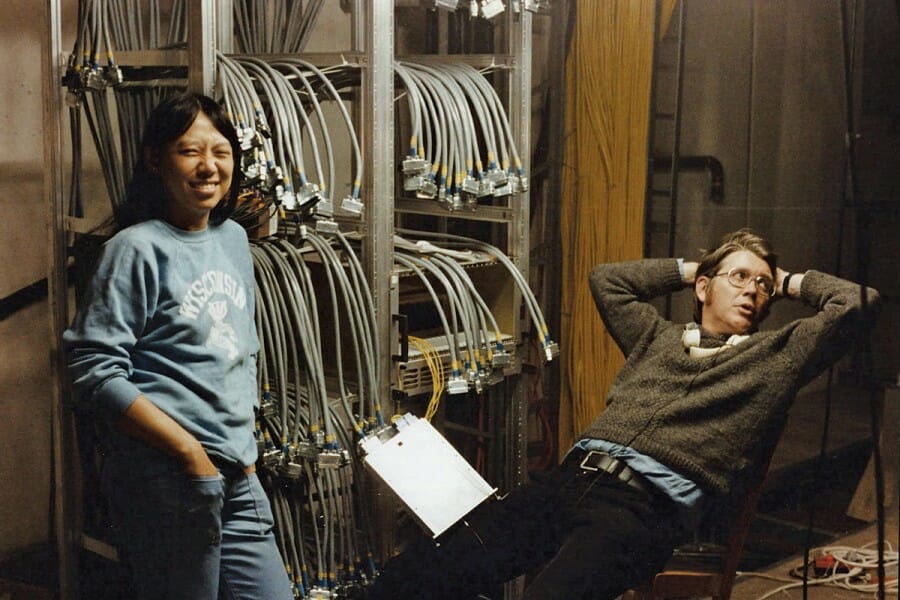
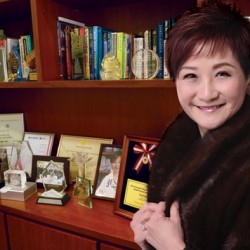
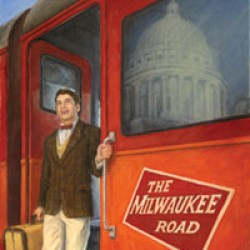

Comments
No comments posted yet.